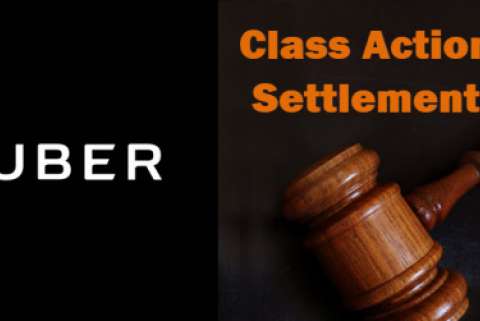Maria Vergara filed the lawsuit against Uber on August 7, 2015. She alleged receiving at least eight unsolicited text messages asking her to complete the sign-up process for Uber’s rideshare service, even though she had never signed up for an Uber account.
According to the lawsuit, Uber violated the TCPA by sending automated text messages to consumers without consent which caused them aggravation and an invasion of privacy. Ms. Vergara’s lawsuit claims Uber is in possession of inaccurate phone numbers, a practice that can cost those receiving the texts money because many cell phone service providers charge for receiving spam texts.
The plaintiffs in the class action stated that they asked Uber to stop sending them unwanted texts, but the messages continued anyway. They also questioned Uber’s procedures for confirming the accuracy of information from prospective users which included sending a verification code to their cell phones. For the plaintiffs in this lawsuit, the result was text messages being sent to consumers who had never expressed interested in their services nor provided consent to receive text messages.
In the class action settlement for Vergara, et al. v. Uber Technologies, Inc. the agreement proposed three settlement classes.
Three Settlement Classes
- Class A. All persons or entities within the U.S. who, during the Class Period, used or subscribed to a wireless or cellular service and were sent one or more non-emergency text messages, utilizing Twilio Inc.'s system, in connection with Uber's Refer-a-Friend Program.
- Class B. All persons or entities within the U.S. who, during the Class Period, started Uber's driver application process but did not become an "active" driver in Uber's system, who used or subscribed to a wireless or cellular service, and to whom Uber sent one or more non-emergency text messages after the user or subscriber requested Uber to discontinue sending text messages.
- Class C. All persons or entities within the U.S. who, during the Class Period, were not party to a contract with Uber and/or who did not provide his or her cellular phone number to Uber, and who used or subscribed to a wireless or cellular service to which Uber sent one or more non-emergency text messages.
As part of the settlement, Uber agreed to discontinue its Refer-a-Friend program on cell phones issued to drivers, maintain an improved opt-out system, and implement signup processes meant to reduce the chances of contacting wrong phone numbers.
To end this lawsuit, Uber agreed to create a fund totaling $20 million to pay valid claims. The settlement requires final approval by an Illinois District Court judge who is scheduled to hear the case on January 23. At that time the court will also consider the request for up to $6.7 million in attorneys’ fees plus costs and expenses, and awards for the six plaintiffs of $10,000 each.
Conclusion
In their defense, attorneys for Uber pointed out that, in the case of Maria Vergara, another user is responsible for her receiving unwanted text messages. That user had mistakenly transposed digits of their own phone number. The user then continued to make requests that a verification code be re-sent to their cell phone. Those requests resulted in eight misdirected texts to Ms. Vergara.
Could this be a sign of more TCPA lawsuits to come? It is a common practice for companies to text a verification code to a user in order to confirm the information they entered is valid. Now it appears that businesses may need to consider implementing an additional verification process to ensure the accuracy of that information too. For serial litigators, this lawsuit may have shined a light on a new opportunity to exploit yet another weakness in TCPA regulations.





